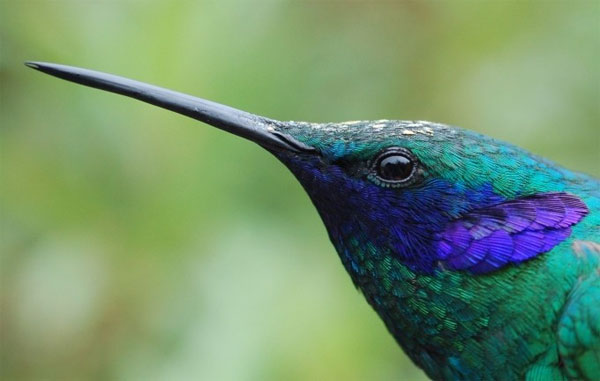It is not always that the animal is big
(bodywork) - Body size has long been noted to play an important role in shaping species interactions, in which larger organisms are more likely to win when in conflict with smaller congeners.
However, biologist Paul Martin of Queen's University has found that occasionally, small birds can defeat larger species in conflicts, especially when they face species with distantly.
These new findings provide evidence that the evolution of certain characteristics could allow species to overcome the smaller size disadvantages.
"We want to find out why these organisms live here, and how different species share resources, such as food, in nature," Dr. Martin explained. "This study provides more information about that. The principle of" lager animal wins "often regulates species interactions, and often influences whether smaller species can Where to live, seems to be broken when competing species are distant relatives. "

In his research, Dr. Martin tested the results of 23,362 competing conflicts among 246 pairs of vulture birds in corpses, hummingbirds in areas with many nectar; antbirds and woodpeckers at ant nests. The study looked at the results of food competitions from the perspective of species size and the evolutionary distance between them.
Special characteristics can help small species have the advantage of competing with large size species including outstanding developments in leg and claw systems, improving maneuverability and speeding up. Abnormal as well as attack-related traits include testosterone and muscle growth.
"This study looks at a wide range of species, and now we want to study in detail the interactions by saving specific animal groups," Dr. Martin said. "We want to study to really understand what causes some species to overcome the small body size disadvantages, while others cannot."
The study was conducted in collaboration with Cameron Ghalambor at Colorado State University in Fort Collins, who received a scholarship to Good Family Visiting Faculty Research Fellowship to Queen's University for this study.
The study is published in the latest issue of PLoS One magazine.
- What is the most 'long' animal on the planet?
- Training on how to identify animal fluids from animals
- Eating animal bile to treat diseases: Money losing bearing
- Revealing the first animal species to live on the ground
- Giants in the animal world
- Animal world and strange things
- Impressive with the amazing 'riding' in the animal world
- The truths make you suffer because you don't know anything about the animal world
- The most meek animal on the planet
- What kind of organs should be eaten
- What is the deep reason that animals are chosen to domesticate?
- 10 facts about animal sex life
 Animal 'suffering' after hibernation
Animal 'suffering' after hibernation Why do goats climb well?
Why do goats climb well? Scientists were surprised to see chimpanzees eating turtles
Scientists were surprised to see chimpanzees eating turtles Giant catfish died deadly due to drought in Thailand
Giant catfish died deadly due to drought in Thailand